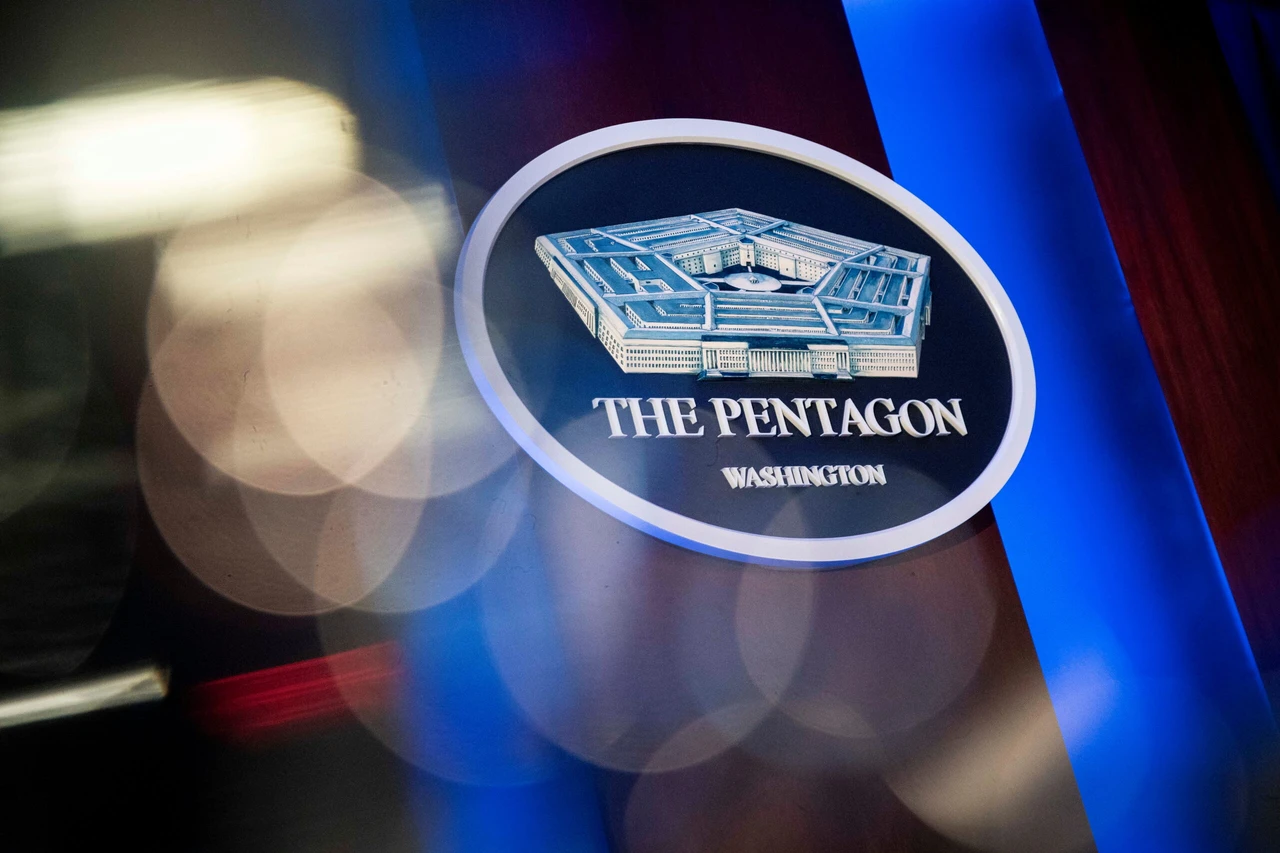Pentagon focused on to prevent escalation of conflict in the Middle East
 The Pentagon logo is seen behind the podium in the briefing room at the Pentagon in Arlington, Virginia, U.S., January 8, 2020. (Reuters Photo/Al Drago)
The Pentagon logo is seen behind the podium in the briefing room at the Pentagon in Arlington, Virginia, U.S., January 8, 2020. (Reuters Photo/Al Drago)
The U.S. Department of Defense is determined to prevent the ongoing conflict in the Middle East from expanding further into the region, according to a statement issued by Pentagon spokesperson Major General Pat Ryder.
Secretary of Defense Lloyd Austin, who has been in regular communication with his team, emphasized that the U.S. remains focused on protecting its citizens and military personnel in the region while supporting Israel’s military actions.
U.S. to counter Iran
The Pentagon said that Austin’s commitment to preventing Iran and its allied groups from exploiting the current conflict or expanding its scope. “The U.S. is resolute in ensuring that neither Iran nor its proxies can take advantage of the situation or further escalate the conflict,” the statement said.
“The United States retains the capability to deploy forces on short notice. The Department of Defense continues to maintain a significant amount of capability in the region and to dynamically adjust our force posture based on the evolving security situation.” Pentagon spokesperson Major General Pat Ryder said.
The Secretary has directed that the USS ABRAHAM LINCOLN Carrier Strike Group (CSG) remain in the USCENTCOM theater and that the USS Wasp Amphibious Ready Group / Marine Expeditionary Unit (ARG/MEU) will continue to operate in the Eastern Mediterranean.
This afloat posture is complemented by DoD’s elevated fighter and attack squadron presence, including F-22, F-15E, F-16, and A-10 aircraft, and we will further reinforce our defensive air-support capabilities in the coming days.
Pentagon spokesperson Major General Pat Ryder

U.S. Embassy issues advisory for citizens in Lebanon
Following the recent Israeli airstrike in Beirut that killed Hezbollah leader Hassan Nasrallah, the U.S. Embassy in Lebanon has urged American citizens in the country to develop crisis action plans and be prepared to shelter in place for extended periods.
The advisory also recommended that U.S. citizens reconsider travel plans to Lebanon amid the increasing likelihood of further conflict. “The widespread nature of ongoing events has led to reduced availability of bedspace in hospitals, limited access to doctors, and has resulted in a general reduction in routine care at medical facilities.” U.S. Embassy said.



